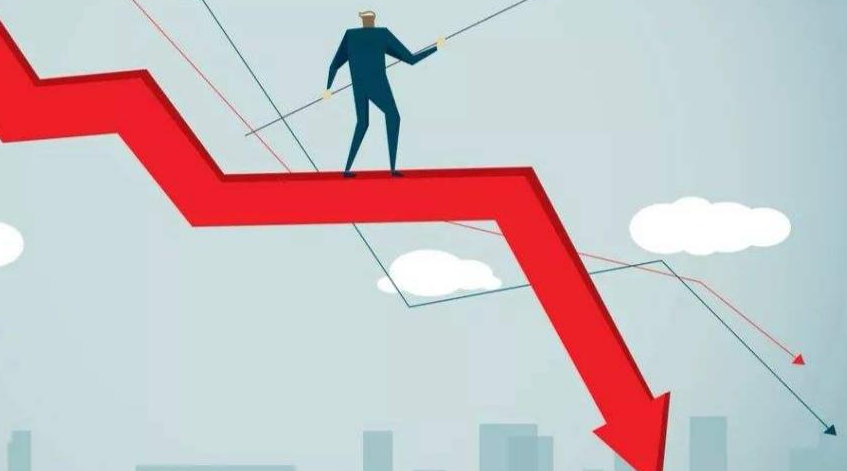Consecutive Declines: What's Wrong with Germany?
Advertisements
Germany, long regarded as the locomotive of Europe's economy, finds itself at a crossroadsThe German economy, historically celebrated for its resilience and dynamism, is now navigating through turbulent waters that have raised significant concerns about its future trajectory.
As 2023 drew to a close, Germany emerged as one of the poorest performing major economies globallyThe latest forecasts for 2024 offer little respite, suggesting that the economic malaise will persist, casting shadows on any hopes for recovery.
Revisiting history provides some context to the current scenario
Twenty-five years ago, Germany grappled with the aftereffects of reunification, a rigid job market, and a decline in export demandThese combined pressures resulted in high unemployment rates, leading to the uncomfortable label of the 'sick man of Europe.' Today, many are raising the question: Is Germany on the verge of relapsing into that same identity? The stagnation affecting growth is no longer merely an economic concern—societal calls for reform are growing louder.
The economic data from 2023 tells a disheartening story of continued contraction and struggleThe Federal Statistical Office reported a GDP decline of 0.3% for the year, marking a continuation of a six-year period of low economic activityAdjusted figures suggested an even steeper contraction, with an overall decrease of 0.1% in economic performance
- Stock Indices Slip Amid Inflation Concerns
- Excavator Sales Show Signs of Recovery
- Public Fund Surpasses 29 Trillion Yuan!
- Trade Routes Reshaped, Global Oil Exports Decline
- Nikkei ETFs Trade at Near 10% Premium
Such numbers portray a bleak landscape for a nation once revered for its industrial prowess.
The alarm bells are ringing louder than everKey indicators released recently underscored the bleakness of the situationFactory orders fell by 5.9% in 2023, reflecting the lowest levels of large-scale orders since the pandemicExports, a cornerstone of the German economy, dropped 1.4% for the year, with December alone reporting a 4.6% declineIndustrial output, beleaguered by similar trends, has seen a consistent downward trajectory, marking the seventh consecutive month of decline, with year-on-year figures down by 1.5%.
This week, the Central Bank's monthly report highlighted a disheartening forecast, projecting further economic contraction in the first quarter of the year, potentially pushing the economy into a technical recession—a scenario defined by two successive quarters of declining growth
The International Monetary Fund has also weighed in, declaring Germany the worst-performing major economy for 2023, with predictions of only a modest 0.5% growth in 2024.
The path forward appears fraught with challengesEconomic analysts are increasingly concerned that Germany's industrial output could see significant reductions over consecutive yearsFactors such as persistently high energy prices and elevated borrowing costs, alongside waning domestic and international demand, are amplifying these fears.
Strikes across various sectors, particularly in transportation, have exacerbated the economic strainNotably, disruptions in the airline industry—most prominently in February due to ground staff strikes at Lufthansa—have caused significant turmoil

In January, railway strikes sparked by wage disputes added to the chaos, alongside protests from farmers over proposed subsidy reductions.
This wave of labor unrest underscores the precarious situation in a country historically esteemed for its protections of workers' rightsThe broad spectrum of strikes signals the profound discomfort many German citizens are experiencing amidst the dwindling economic prospects.
The roots of Germany's current economic malaise run deeper than external factorsA broad array of issues, including a slowdown in global trade, soaring energy prices, and geopolitical uncertainties, have all contributed to this predicament
Yet, structural challenges also loom largeThe country faces significant headwinds stemming from labor shortages and cumbersome bureaucratic hurdles, coupled with outdated physical and digital infrastructures that hinder productivity.
Germany's economy is heavily export-oriented, with exports constituting a substantial segment of its GDPSince the 1990s, this segment has nearly doubled, far outpacing countries like the UK, France, and the USIn years past, the export boom significantly propelled Germany's economic growthHowever, the current global shift towards deglobalization has diminished the effectiveness of relying on external demand to stimulate the domestic economy.
The economy has been slow to pivot from its traditional manufacturing model
While Germany has historically thrived on its robust industrial base, the advent of peak energy costs and the imperative for economic decarbonization present formidable challenges compared to nations with stronger service sectorsThe automotive industry, once a flashing beacon of German manufacturing, has seen production dwindleThe era of high production, notably seen in 2017, has now been overshadowed by the rise of competitors, particularly electric vehicle manufacturers in China, increasing pressure on German automakers.
Recent analyses from Deutsche Welle highlighted a crucial challenge: Germany’s erstwhile effective economic model—importing cheap energy and raw materials primarily from Russia, transforming these into high-quality products for export—has become untenable
The multifaceted crises of recent years have starkly illuminated the underlying vulnerabilities within Germany's economic framework.
Furthermore, the small and medium-sized enterprises (SMEs), often referred to as the backbone of the German economy, are now facing escalating pressures and risksEconomic experts uniformly recognize that Germany is at a critical juncture where extensive reforms are paramount to rejuvenate the economy.
Berlin's German Institute for Economic Research has emphasized the urgency of fundamental economic transformationAccording to their director, the pressing challenges ahead do not merely involve the next couple of years; they extend into the next decade, necessitating a comprehensive reimagining of the nation’s industrial landscape.
Governmental efforts, while tentative, have begun to respond to these challenges
Leave a Reply